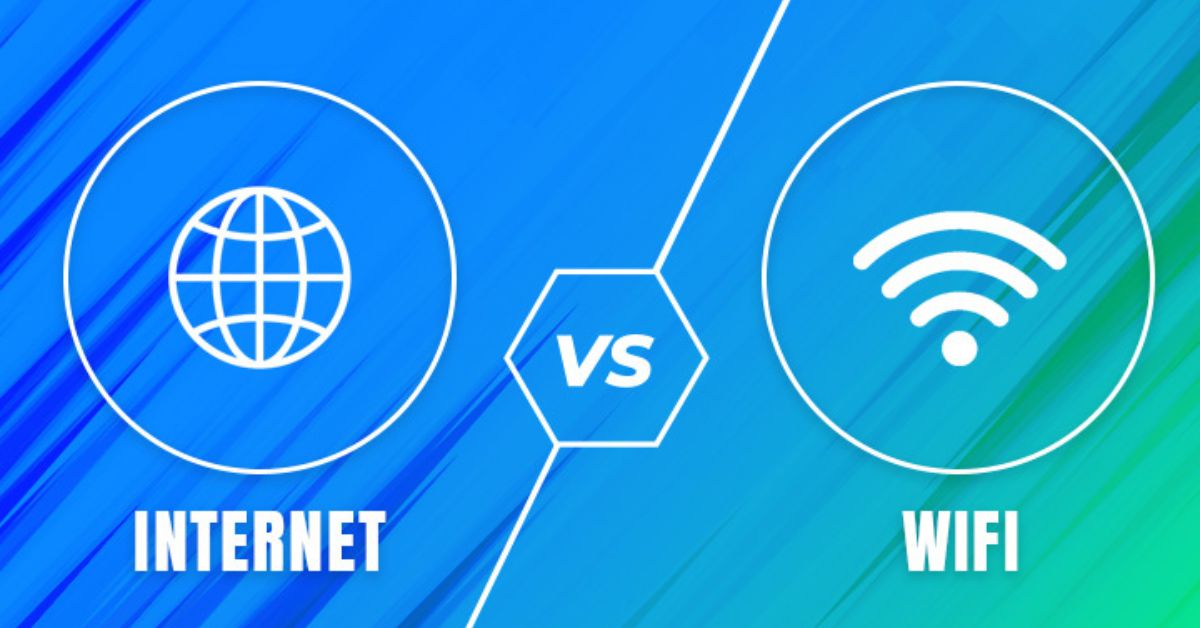Nowadays, connecting to the internet involves choosing between the Fiber Internet and Wi-Fi networks. It’s like picking between two different tools for getting things done online. Fiber Internet is super speedy, like a race car, while Wi-Fi is more like a trusty sidekick, always there to keep you connected wirelessly. But what exactly sets them apart?
Fiber-optic cables transmit data at remarkable speeds up to 1,000 Mbps, ensuring seamless streaming and rapid downloads. While fiber internet might not be universally available, various companies offer competitive packages.
On the other hand, Wi-Fi networks, though prevalent, might experience signal degradation or speed fluctuations depending on the provider and location. Careful consideration of available internet and the technologies offered is essential for deciding on wifi vs fiber optic.
Let’s dive into these technologies to figure out which one does a better job of getting our internet working smoothly. Understanding the differences and consequences between these two is crucial in determining which suits your needs best, especially when considering internet providers Charlotte NC.
Discovering the Factors – Fiber Internet vs Wifi
Fiber Internet operates on fiber-optic cables, utilizing light pulses to transmit data. These cables are made of thin strands, allowing for data to travel at incredible speeds, almost at the speed of light. This technology offers unparalleled speed, making it one of the most advanced internet delivery systems. However, wireless technology has made substantial advancements and provides convenient connectivity.
Here are some points indicating fiber internet vs wifi:
About Fiber Network
Speed
Fiber-optic cables can deliver Gigabit-speed internet, allowing for lightning-fast downloads and uploads. With speeds reaching up to 1,000 Mbps, streaming high-definition videos, gaming, and handling large data transfers become seamless experiences. Here are some factors regarding fiber network.
Reliability
The signals in fiber-optic cables are less susceptible to interference from external factors like electromagnetic noise or weather conditions. This makes Fiber Internet highly reliable, ensuring consistent performance even during peak hours.
Bandwidth
Fiber connections offer significantly higher bandwidth compared to traditional copper cables or Wi-Fi. This means multiple users can access the internet without compromising the speed or quality of the connection.
While Fiber Internet boasts impressive performance, its availability might be limited to certain areas due to the expensive infrastructure required for installation. However, where accessible, it’s often considered the gold standard for high-speed internet.
The differences between fiber optics vs wireless become evident in scenarios demanding uninterrupted, high-speed connectivity. While Wi-Fi networks provide convenience and mobility, they might struggle to match the fast speeds.
About Wi-Fi Network
Wi-Fi is a technology that permits devices to connect to the internet without physical cables. It has radio waves to transmit data among devices and a router, offering convenience and mobility within a limited range. Here are its key factors:
Convenience
Wi-Fi, a cornerstone of modern connectivity, facilitates the linkage of multiple devices and the entanglement of cables. This wireless technology is used in both home and office networks, delivering unparalleled flexibility and mobility across a spectrum of devices. This contrast between fiber optic vs wireless indicates the convenience of Wi-Fi, enabling users to seamlessly connect laptops, smartphones, smart TVs, and an array of IoT devices.
Accessibility
Wi-Fi networks are prevalent and relatively easy to set up, making them the go-to choice for most households and public spaces. They provide internet access to smartphones, laptops, smart TVs, and IoT devices within their coverage area.
Speed and Interference
While Wi-Fi technology has evolved to offer faster speeds (with the introduction of Wi-Fi 6 and beyond), the actual speed experienced can vary due to interference from walls, distance from the router, and the number of connected devices.
One of the significant drawbacks of Wi-Fi networks is their susceptibility to interference and signal degradation over distance or due to obstructions. However, ongoing advancements in Wi-Fi technology aim to mitigate these limitations.
Choosing the Right Fit
Deciding between Wi-Fi vs fiber optic connections hinges significantly on individual requirements and situations. Fiber Internet is the ideal choice where available for users prioritizing speed, reliability, and consistent performance, particularly in data-intensive tasks like gaming or streaming 4K content.
The choice between fiber optic vs wireless boils down to users’ specific requirements. For those placing a premium on speed and unyielding reliability, especially in high-bandwidth activities, Fiber Internet offers an unparalleled experience in data-heavy tasks where Wi-Fi might falter.
Gamers seeking low latency and seamless experiences or households craving uninterrupted 4K streaming might find that fiber-optic internet better caters to these demanding needs. Its ability to deliver Gigabit-speed internet with minimal interference positions it as the top contender for users craving top-tier performance.
However, Wi-Fi networks remain a versatile and practical option for users, valuing flexibility, ease of setup, and connectivity across multiple devices within a limited range. Now the question comes is fiber optic internet wireless? It’s important to note that while fiber optic internet is incredibly fast and reliable, it is not wireless. It relies on fiber-optic cables to transmit data through light pulses, necessitating a physical connection.
Also Read: What Is Navigation from Telematics?
Wrap Up!
In the ongoing debate over is fiber internet better than wifi? The answer is very easy to explain. Each technology excels in different areas, catering to distinct user needs. Fiber Internet boasts unparalleled speed and reliability, making it the preferred choice for users requiring lightning-fast, consistent connections.
Conversely, Wi-Fi networks offer unmatched convenience, allowing multiple devices to connect wirelessly within a limited range.
Ultimately, determining which is better between wifi and fiber optic hinges on individual priorities. For those prioritizing top-tier speed and reliability, especially in data-intensive tasks, Fiber Internet shines.
However, Wi-Fi networks remain a practical choice for users valuing flexibility, ease of setup, and wireless connectivity among various devices.
The decision ultimately rests on the user’s specific requirements, balancing the need for speed and stability against the convenience and mobility offered by Wi-Fi networks. Assessing these factors will guide users to the technology that best aligns with their unique preferences and usage patterns.

